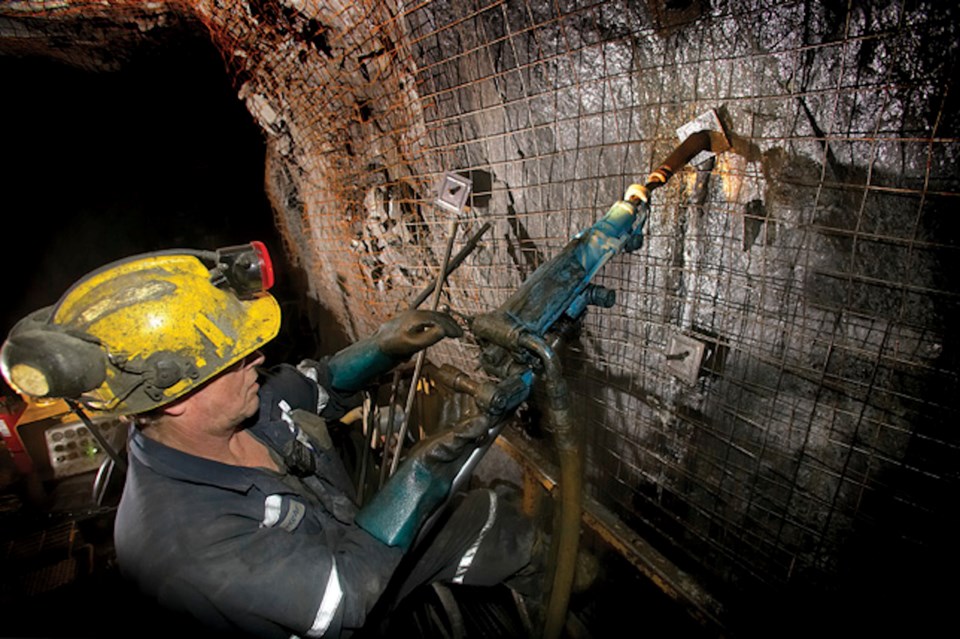Depression in hard rock miners is so prevalent it’s akin, in many ways, to the ubiquity of the common cold in the general population.
That’s a real-world analogy from Dr. Michel Larivière, a clinical psychologist and professor at Laurentian University in Sudbury who’s been studying the mental health of mine industry workers for the last five years.
Through his research, Larivière explores the relationship between workplaces and its impact on the employees who work there.
“We're really interested in their mental health and wellbeing, and one of the clearest indicators of that is depression,” Larivière said during an online panel discussion on Nov. 2.
He and others discussed how employers can support the mental health of remote and rotational workers as part of an ongoing series hosted by Workplace Safety North.
“Depression is not a small issue — quite the contrary,” Larivière added. “There's significant suffering involved here.”
The results of Mining Mental Health, a five-year study led by Larivière involving Vale workers, were published in 2019.
He found that 18 per cent of mine workers show signs of mild depression, while 9 per cent have moderate symptoms, and 6 per cent have borderline critical symptoms. An additional 2.3 per cent have severe symptoms, and 0.9 per cent show extreme symptoms of depression.
“What you have is at least a mildly to moderately depressed workforce of those people that you are caring for,” Larivère summarized.
But depression is just one indicator he uses to measure workers’ mental health. The presence of anxiety, fatigue, burnout, and post-traumatic stress disorder (PTSD) can additionally provide a good look into a worker’s mental state.
Priya Maloni, a director at MYNWELL (pronounced “mine well”), said the traditional model of workforce wellness — the idea that workers should “suck it up” or “just work through it” — is hurtful and costly.
Remote workers in particular may be susceptible to the impact of isolation — from home, family, friends, physical and social activities — which can negatively affect their mental health.
Instead, she suggests employers create a comprehensive wellness plan that takes into account multiple facets of workers' health.
“We’re looking at an individual from lots of aspects,” she said. “We’re looking holistically from the physical, mental, as well as the social side.”
That means creating an authentic “wellness plan” that is built into the organizational structure of the company, and it requires supervisors and management to be on board as well.
“It’s just not enough to direct someone to a phone line that they can call,” she said. “You need to have that conversation. You need to be able to give really great tangible solutions.”
Mario Causevic, also a director at MYNWELL, said there are plenty of opportunities for companies to take small steps toward this process.
Supervisors and managers can bring up the topic of mental health during a morning huddle or company workshop. He also suggested having a dedicated wellness space, such as a gym, that’s set aside for employees to go to relax away from camp life.
Having a workplace assessment done by a third party can give employers a good snapshot of what services are on site or nearby, and where there exist areas gaps that need filling, he added.
Once a wellness plan is in place, it’s important to educate new employees during their orientation, so they’re immediately aware of what wellness services are available.
“It sets the precedent and the standard right off the bat as that individual is hired,” he said.
“That goes to show the values that are followed by that company, and it shows that, in terms of tough and challenging times, there are options for those individuals right when they enter in the first week.”
He emphasized that “one size doesn’t fit all” when it comes to mental wellness and each employee may need different types of support.
But it’s important to create a comfortable space where employees feel supported and open to talking about mental health.
“Wellness goes a long way for the long term,” Causevic said. “Mental and physical health solutions can be tackled by small wins, small steps in an informal approach that gets the workforce on your side from leadership and management altogether.”
Mental health resources provided by Workplace Safety North are available for companies to access here.




